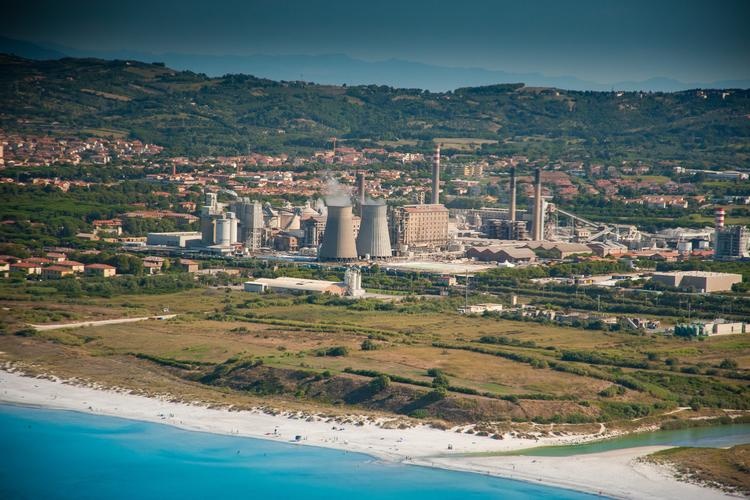Solvay Reuses Rosignano Limestone Residues
Solvay is collaborating with two companies to collect and reuse the limestone residues from its soda ash production in Rosignano, Italy. The move will enable the residues to be reused in construction and agriculture.
Working with Belgian startup IPSIIS—a specialist in manufacturing environmentally-friendly, non-flammable, lightweight and geo-sourced insulating mineral foams— the partners are testing the use of soda ash manufacturing residues to produce specialized construction products.
In addition, Solvay is working with the Italian subsidiary of Germany-based Ferro Duo, which specializes in recycling industrial materials, to use the inert solids from soda ash manufacturing as fertilizer components.
Pending further tests, the new partnerships could accelerate the decrease of limestone residues released into the sea, building upon the action plan that Solvay announced in September to invest in new technical solutions at the site.

“We are excited to work with IPSIIS and Ferro Duo to develop the capabilities to create a circular economy for our soda ash production in Rosignano,” said Philippe Kehren, president of Solvay’s Soda Ash & Derivatives division. “This is the latest example of how we are constantly looking for innovative ways to improve the sustainability of our operations, a key component of our Solvay One Planet Roadmap.”
Solvay’s One Planet program aims to reduce the environmental footprint of its operations and create a better life for its employees, local communities and society.
On Sep. 29, Solvay signed a Memorandum of Understanding with local authorities to improve the overall footprint of the Rosignano site and its integration in the surrounding area. Investments are targeted at reducing CO2 emissions, cutting freshwater consumption, lowering energy use, increasing recycling and reinforcing biodiversity.
The Rosignano facility has been manufacturing soda ash and sodium bicarbonate since 1912. The products are made from natural limestone and salt and serve essential applications, such as the production of glass and air-pollution control systems, as well as applications in the healthcare industry, for example hemodialysis.
Author: Elaine Burridge, Freelance Journalist


















